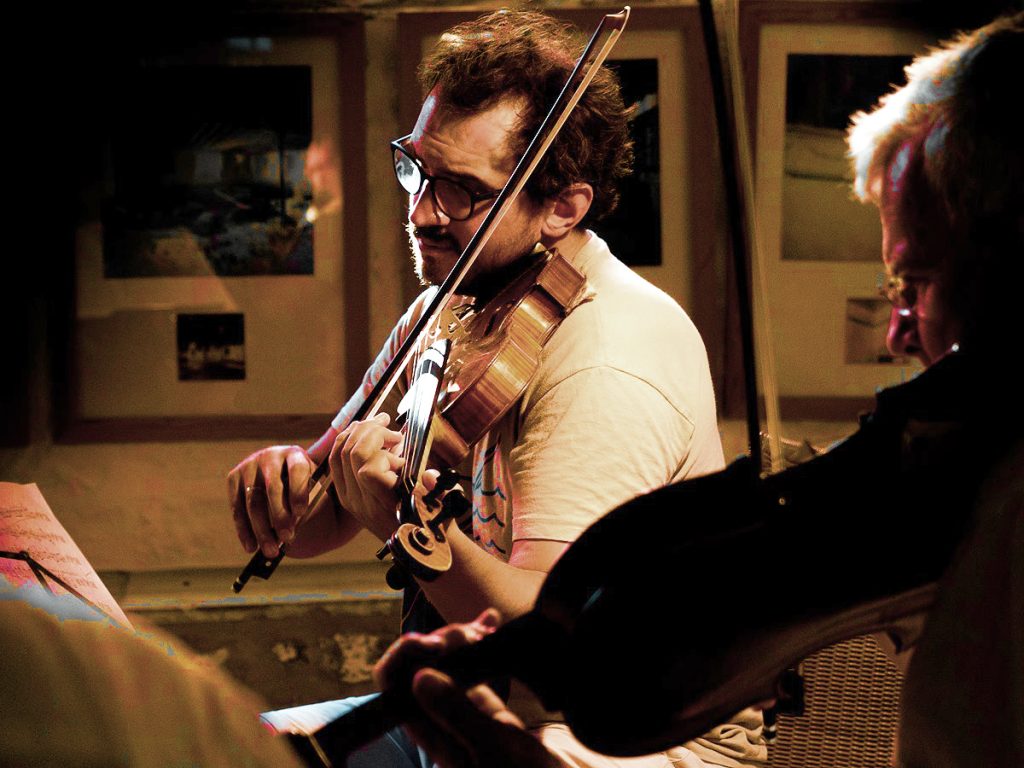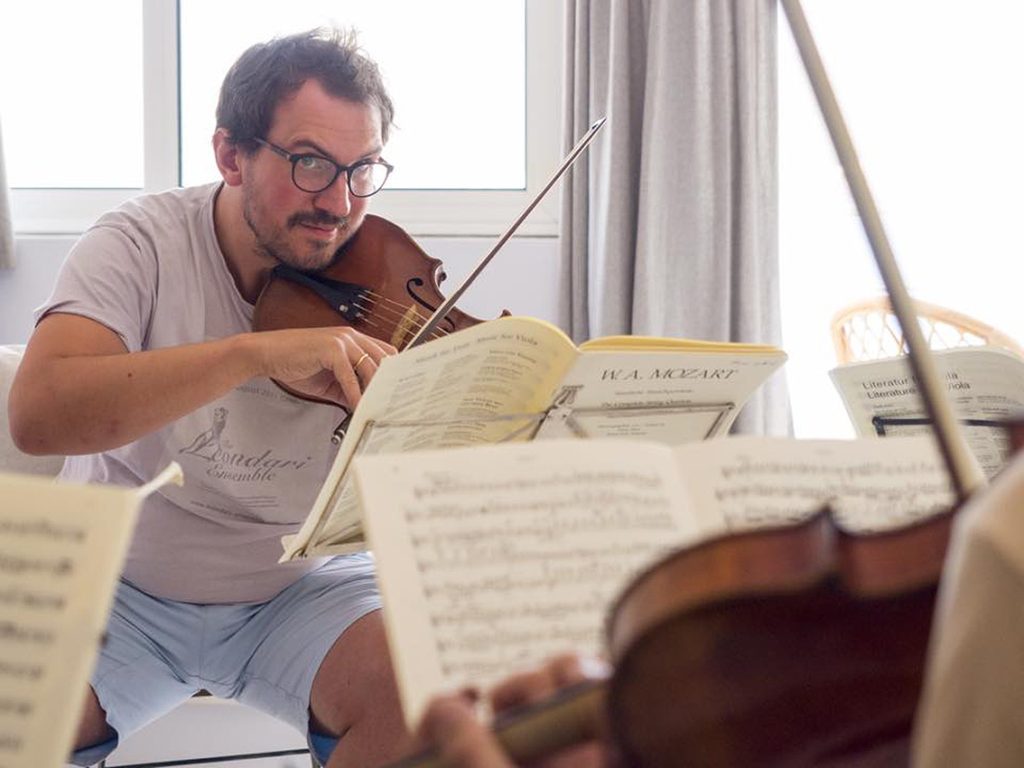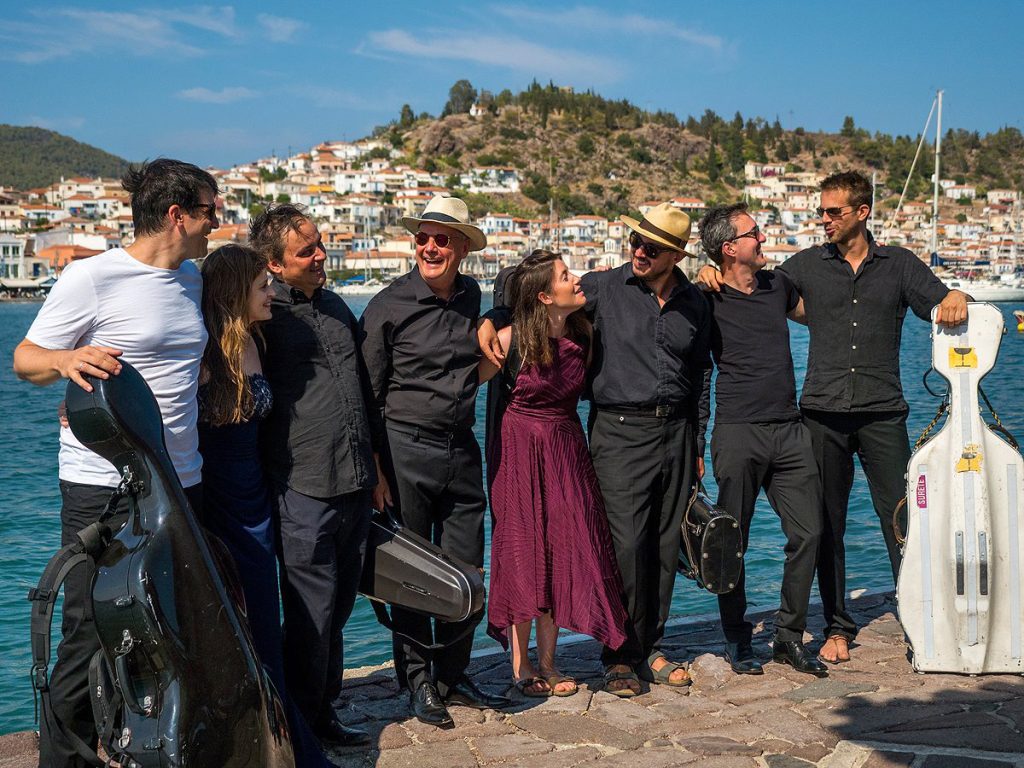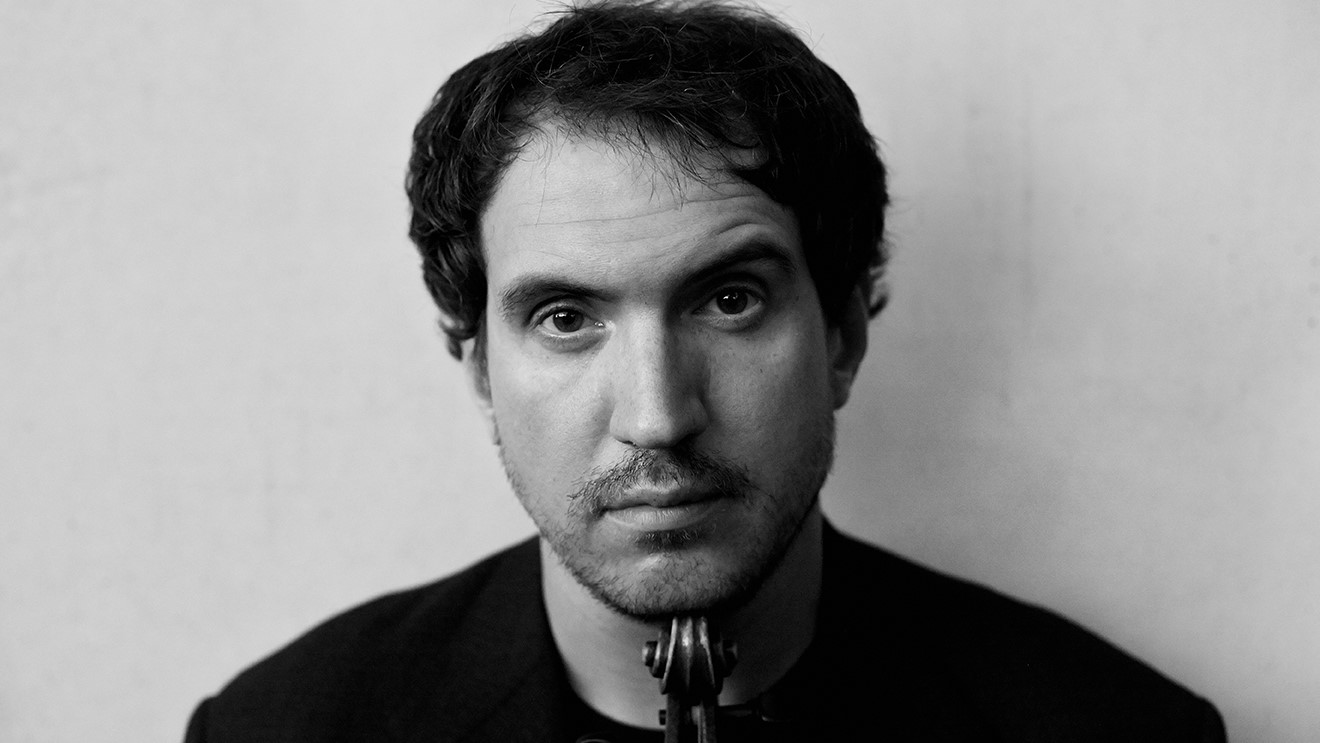By Kathy Karageorgiou.
Francis Kefford is a 37-year-old, born and bred Australian. He is currently a freelance musician who has played classical music with the London Symphony Orchestra and now plays mostly at the Royal Opera House in London, while consecutively recording sessions for film and TV.
Francis is also the founder (and multi-instrumentalist) of an annual classical music event, the Saronic Chamber Music Festival, that takes place in Greece every summer since 2010.
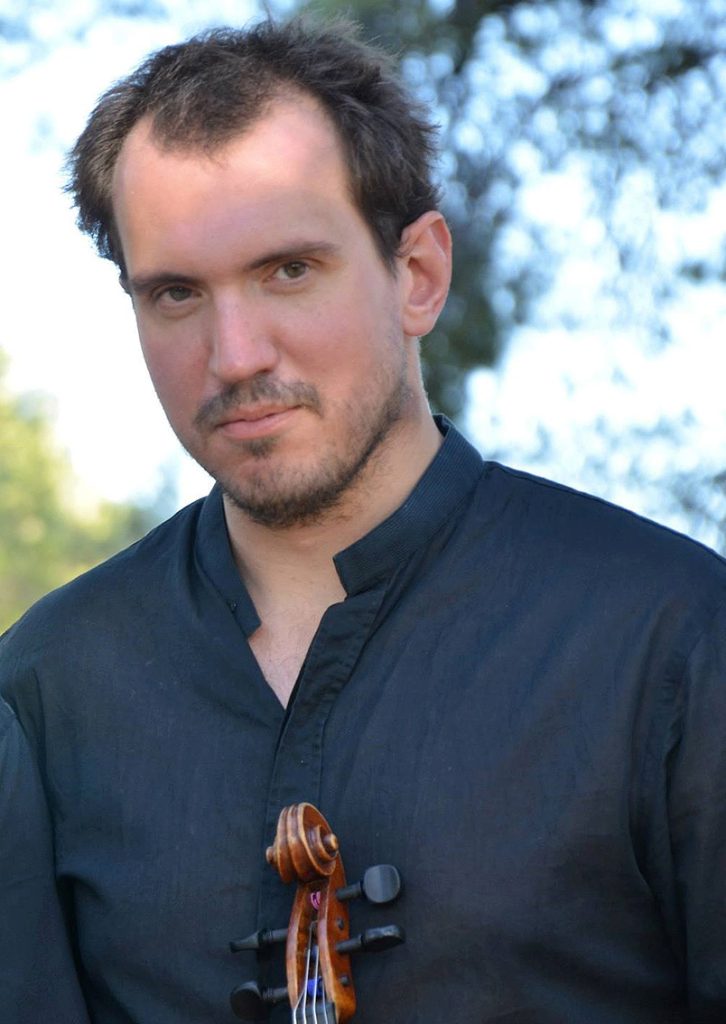
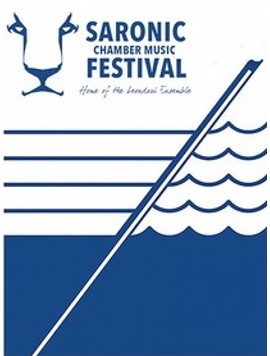
Francis left Australia at 16, moving to London on a scholarship to study at the prestigious Purcell Music Academy, and then attended the Royal Academy of Music in London.
Aged five, Francis learned violin and piano, inspired by music at home growing up.
“You learn about music from listening to all types. As a teen, the first non-classical music I got into was Jimmy Hendrix and Bob Dylan. Then in my later teens, I listened to soul, funk and jazz – mainly Black American music,” Francis says.
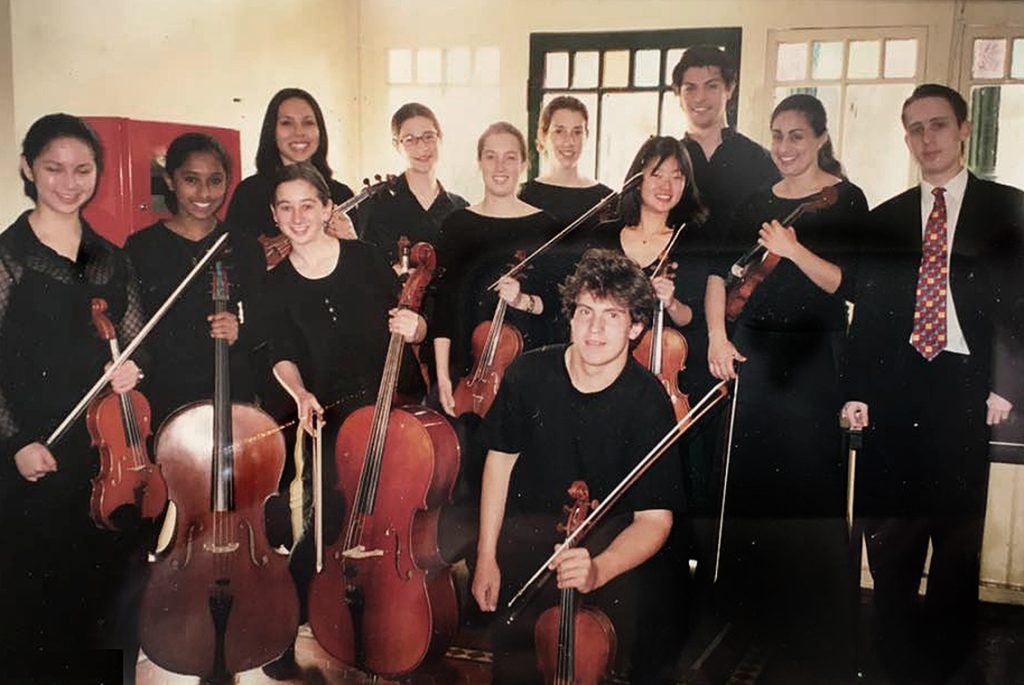
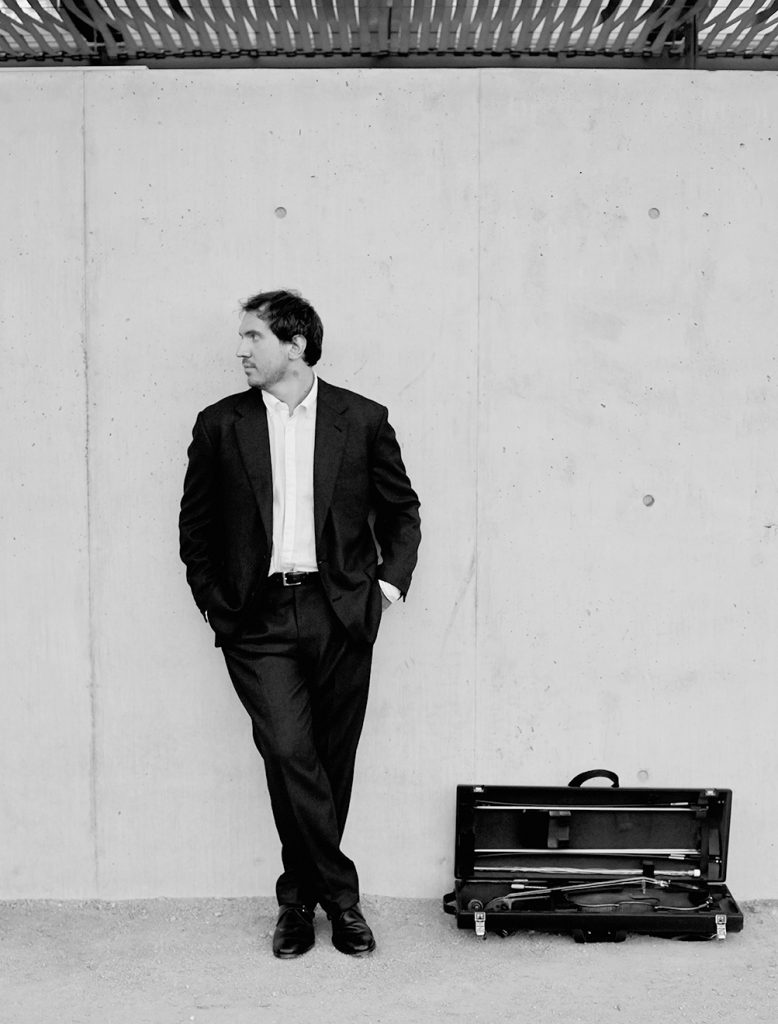
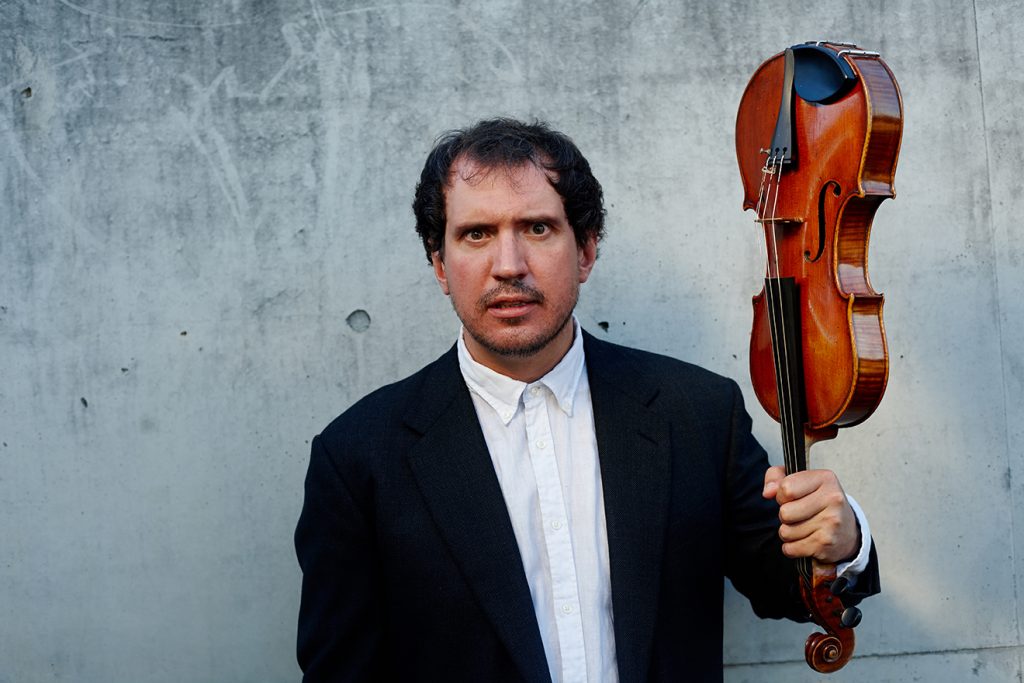
Francis’ preference for classical music prevailed, motivated by his exposure to it by his parents. His father also played piano, while his mother, an avid listener of classical music as well, was also and continues to be, an avid lover of Greece.
Even though Francis and his family are not of Greek descent, his mother grew up in Athens, Greece, from the ages of 6-12, as her father (Francis’ grandfather) was in the diplomatic service there. Later on, she also became the “koumbara” (maid of honour) of Francis’ Australian godmother who married a Greek and lives permanently in Galatas, Greece.
Francis’ connection with Greece is now primarily through playing in the Saronic Chamber Music Festival which takes place mainly on the islands of Poros, Hydra, Aegina and Spetses, with occasional performances in Galatas, Methana and Kythera. The Festival sees Francis, along with up to 10 other musicians who vary every year, play music of the great names of classical music “like Beethoven, Mozart, Bach and more.”
The Saronic Chamber Music Festival was named after the ‘chamber’ or room of mostly wealthy European people’s homes where classical music was played by well-skilled musicians in close proximity to its listeners. Francis tells me of the subsequent intimacy between the musicians too, as they play their string instruments, such as violin, viola, cello, piano, and sometimes clarinet and flute.
“A fabulous Greek percussionist plays with us sometimes too,” he adds.
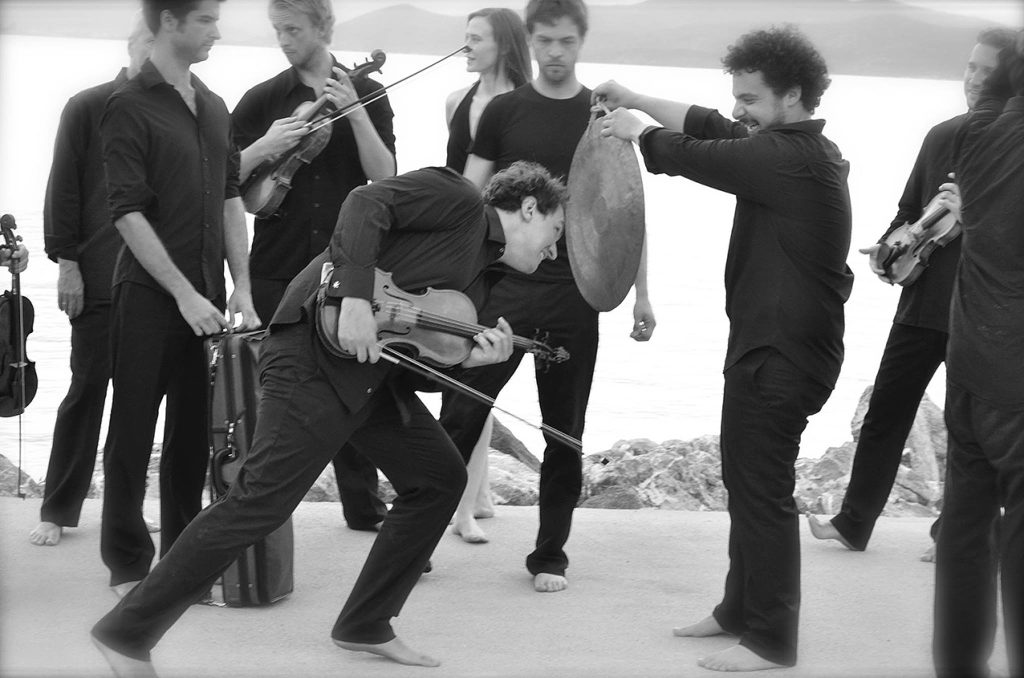
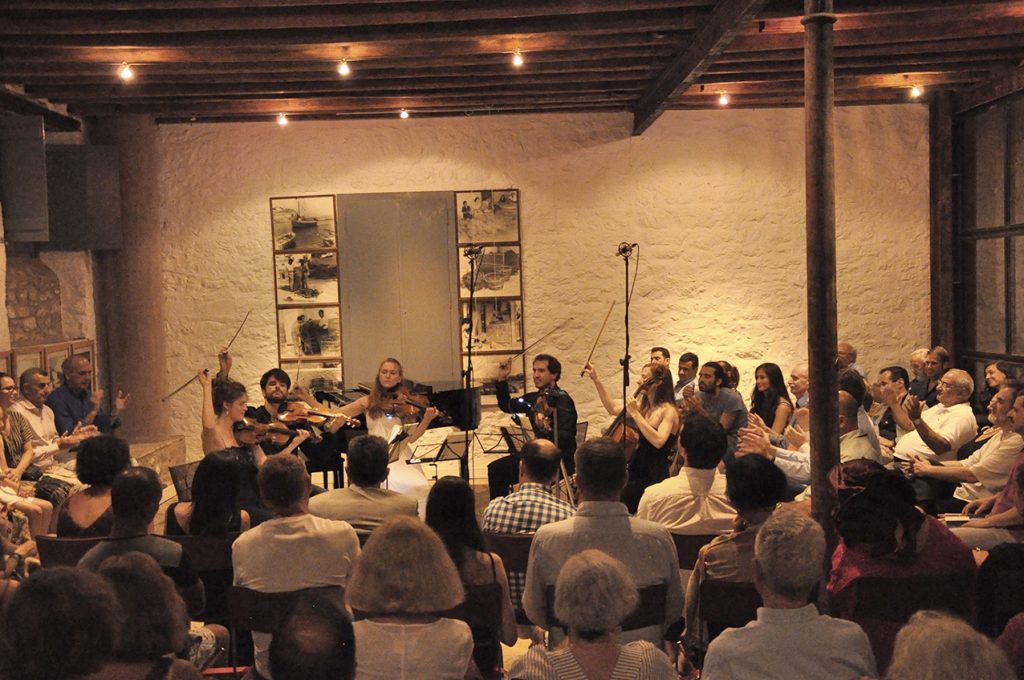
Francis also stresses the quality of musicianship in the Saronic Chamber Music Festival: “The calibre of musicians for a small organisation such as ours is great. The musicians are professionals in their fields. Benjamin Bowman – the concert master of the New York Metropolitan Opera – has played with us four or five times,” adding “they’re in it for the love of chamber music – not for the money (as it’s difficult for us to get funding), and of course they love Greece.”
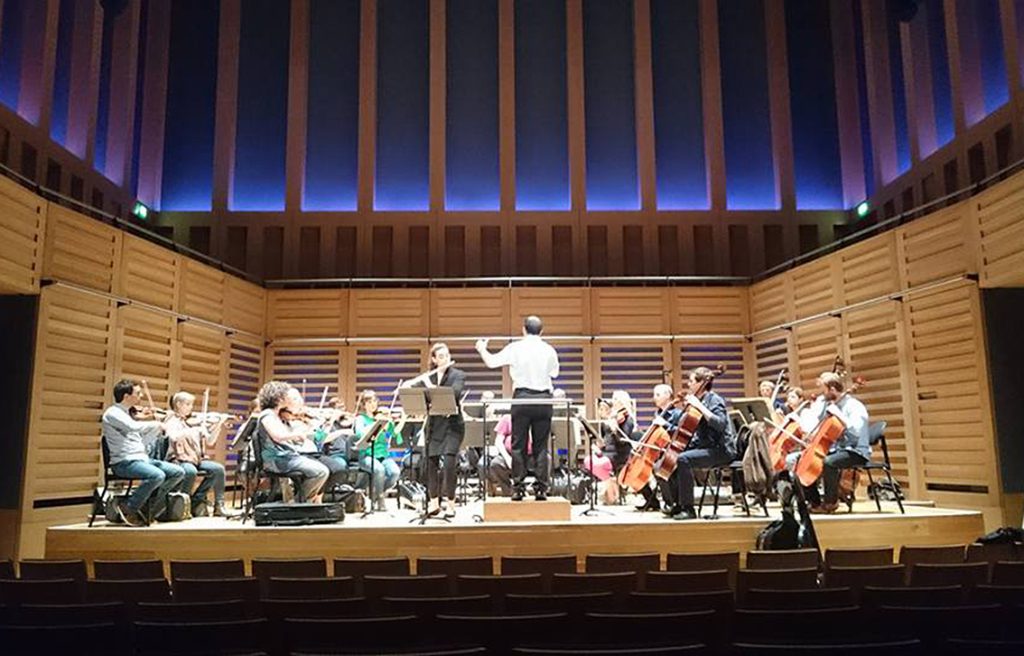
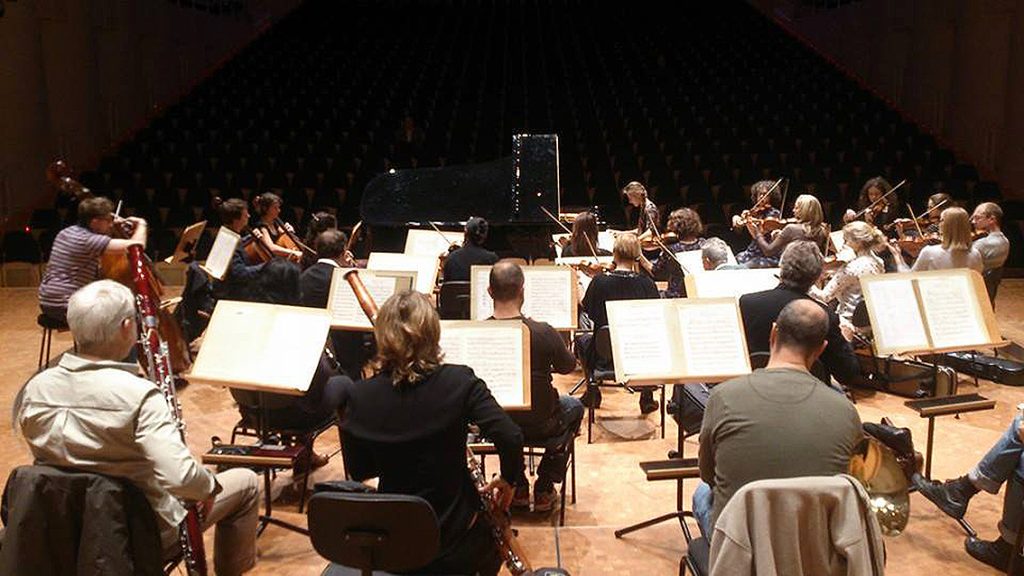
As for choosing the Saronic Islands for the Festival’s location, Francis recalls his introduction to Greece.
“At first I was impressed by the sea and beautiful natural landscapes, visiting my godmother in Galatas when I was 16. Also by Greece’s friendly, welcoming people. But later on, I understood the combination of East and West culture that makes Greece unique; European but not European – a tension that has existed over time. That’s why the Saronic Chamber Music Festival is such a success; Greece’s uniqueness is a big draw card for luring musicians and audiences alike,” Francis explains.
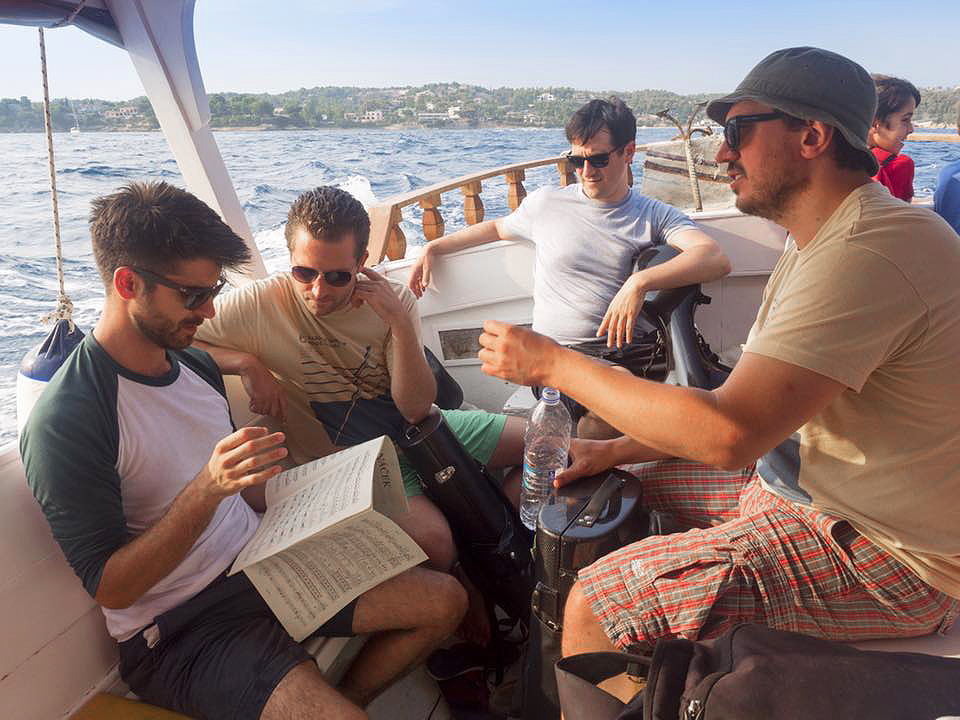
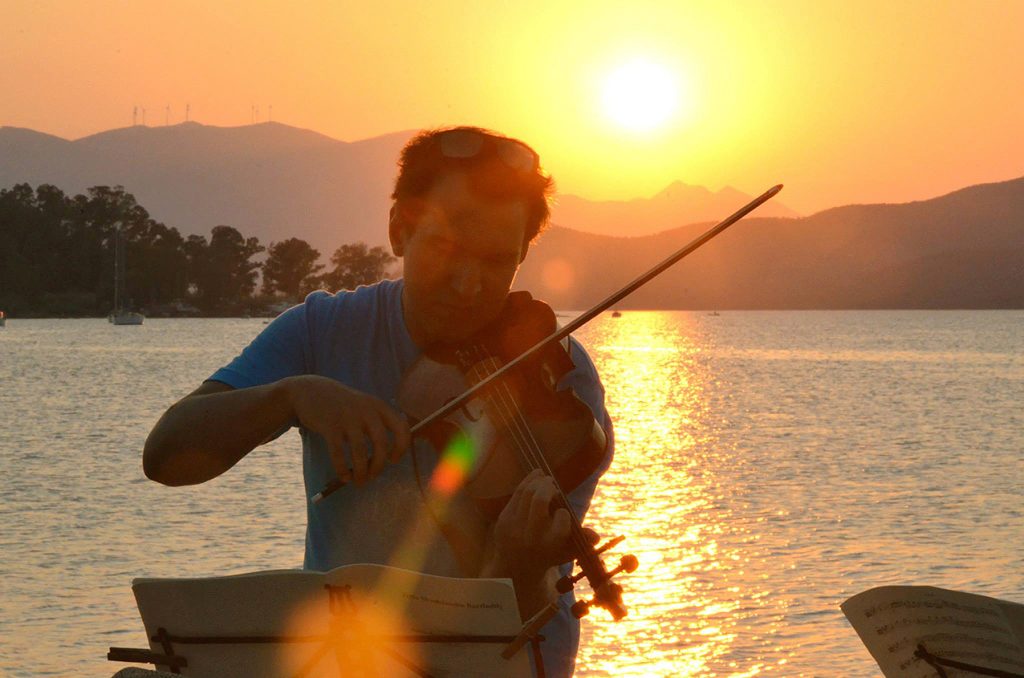
In terms of Greek music, he tells me of a memorable experience on an early visit to Greece, where he heard “live folk music – rembetika” one evening at an Athens market.
Francis gives me some interesting insights regarding Greece’s relationship or lack thereof, with what is generally regarded as classical music; that of the era from the 17th to late 19th centuries. Being under the dictates of the Ottoman Empire for four centuries and hence missing out on the Enlightenment is one main reason, but another is the forbidding of instruments in the Greek Orthodox Church – apart from the male human voice.
I mention our current classical music ‘scene’ in Greece, incorporating The Megaro Mousikis, the Lyriki Skini, The Stegi and our 2 National Orchestras. Francis too, has played classical music at such internationally acclaimed settings and with renowned orchestras, but prefers chamber music.
“In orchestras and big concert venues everything is ‘big’, so each individual has less input, but in chamber music’s small group, everyone is of equal importance,” he says.
“It’s an intimate way of making music; the most profound experience of making music.”
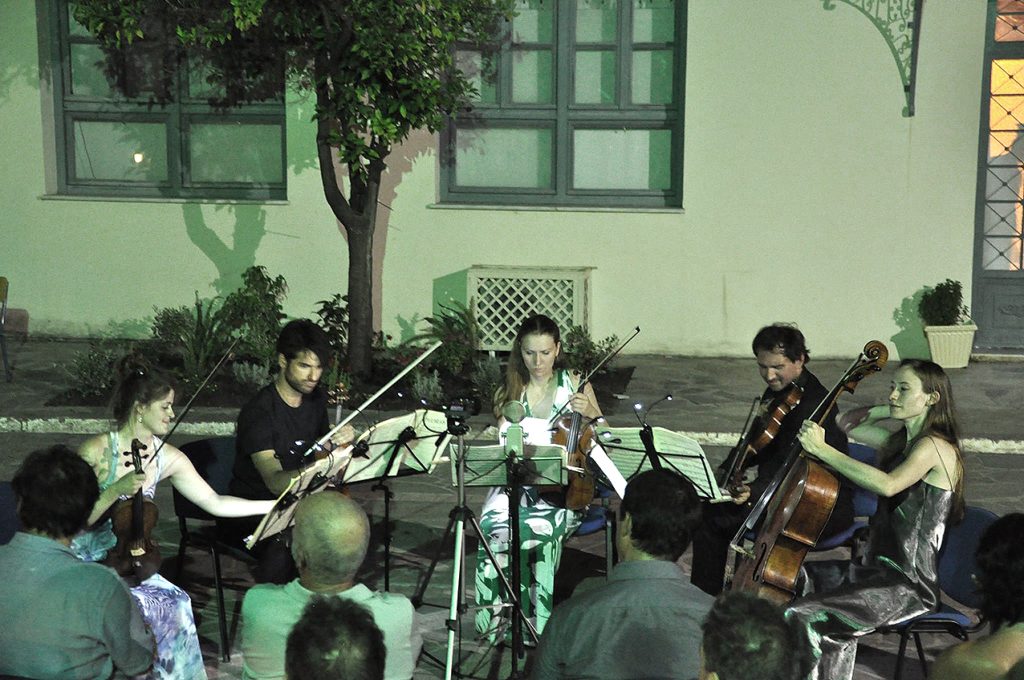
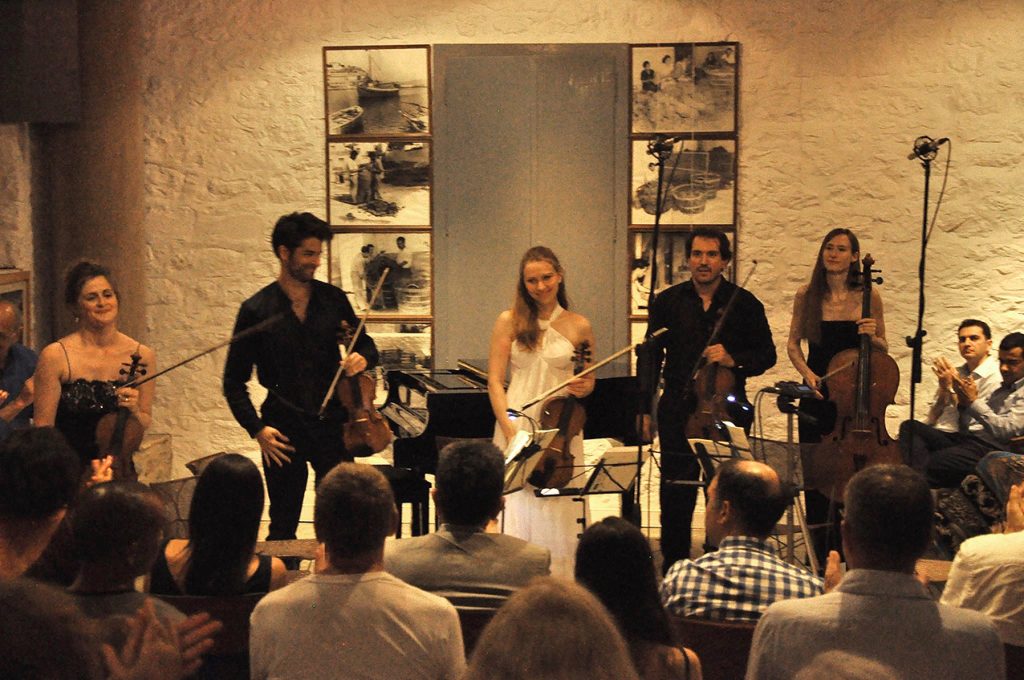
We also allude to a concept that classical music may not be that popular with Greeks as some may consider it a foreign imposition.
Francis says: “This is a mistake. Greeks listen to the Beatles for example. Culture is not where it comes from. This led us to doing the Saronic Chamber Music Festival in Greece, because there wasn’t a lot of that happening, unlike the related summer festivals in the UK, Germany and France. Yet now, we have eventually managed to build a dedicated audience in Greece, with many people telling us that they’ve never come to a concert like ours, and that they’re blown away! The joy of that is worth it.”
